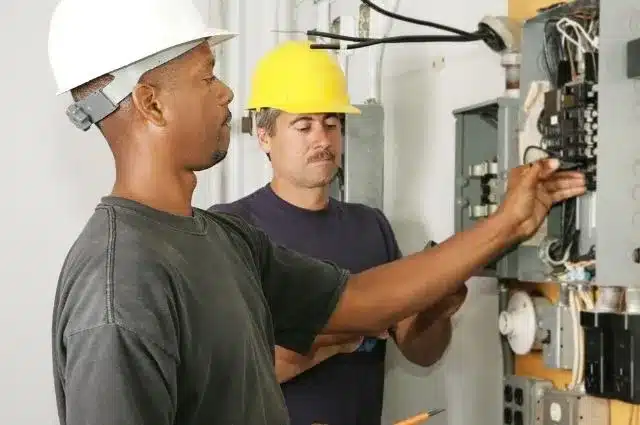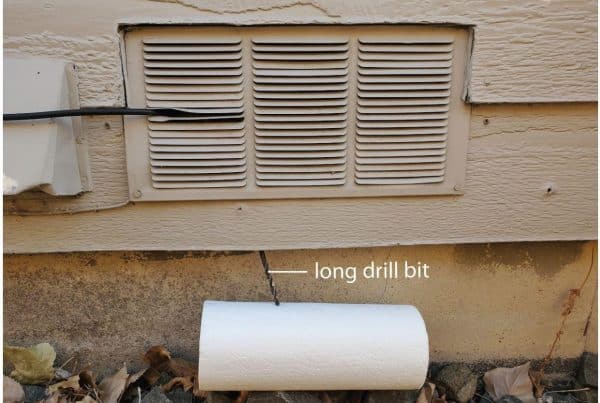Electricians play a vital role in our everyday lives. They are crucial to maintaining power, electrical equipment, and other electrical needs in commercial and residential settings. These skilled workers are trained professionals who build, install, test, and maintain electrical systems and components. At their core, commercial and residential electricians share similarities. But they differ in a variety of ways.
The three main ways they differ are in their:
- Work Environment
- Education Requirements
- Job Responsibilities
Work Environment
Commercial Electricians
Commercial electricians typically work in larger commercial environments. They work in office buildings, schools, retail stores, industrial facilities, and warehouses. Typically, commercial electricians handle complex electrical systems, high-voltage equipment, and other electrical components like transformers and receptacles. Commercial electricians often work in teams on multiple projects at a time.
Residential Electricians
On the other hand, residential electricians usually work in smaller-scale environments, primarily homes, apartments, and smaller residential complexes. These electricians deal with basic wiring, lighting, electrical systems, and circuit boards. Residential electricians work closely with homeowners to service their electrical needs.
Education Requirements
Commercial Electricians
To become a commercial electrician, one must undergo extensive education and training. Commercial electricians must complete a four-year apprenticeship program to become certified in most areas. It’s common for commercial electricians to work in specific apprenticeships to gain experience in commercial settings. Their hands-on training teaches them to handle complex electrical projects, work with advanced electrical systems, and understand commercial safety standards and regulations.
Residential Electricians
Residential electricians also undergo schooling and training for four years but focus more on residential codes and basic electrical practices. Typically, residential electricians also take on an apprenticeship, but they’ll work with a tradesperson or electrician business specializing in residential properties.
Job Responsibilities
Commercial Electricians
In their work environment, commercial electricians typically work with high-voltage electrical systems. These extra high voltage systems usually exceed 240 volts for larger commercial buildings. Commercial electricians also work with large wiring systems, complex electrical units, and different quality systems.
Residential Electricians
When it comes to voltage systems, residential electricians usually handle systems between 120 and 240 volts in residential settings, like a home. Their responsibilities include managing basic wiring requirements and installations, troubleshooting household electrical issues and providing custom solutions for their customers.
Both commercial and residential electricians serve their customers in different ways regarding their work environment, education requirements, and job responsibilities. Typically, commercial electricians take on large-scale commercial projects, while residential electricians work on smaller-scale personalized solutions in homes.
AJ’s Electrical serves customers across Vancouver and the Lower Mainland, helping them with their electrical needs. Their expert team has over 60 years of combined experience. They know what it takes to ensure safety, functionality, and efficiency for your home.








